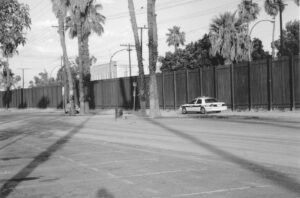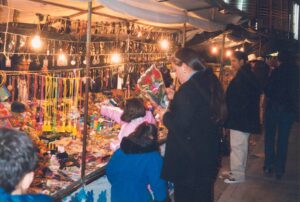Louis Freedberg
- 1999

Fellowship Title:
- The Unintended Consequences of Immigration Reform
Fellowship Year:
- 1999

U.S. Border Wars Show No Signs of Keeping Migrants Out
El Paso, Texas—Wire fencing encases the sides of the Rio Grande where the river slices through El Paso on the U.S. side and Ciudad Juarez on the Mexican side of the border. Its purpose: to keep out illegal migrants who each year routinely swim across to seek their fortunes in the United States. Today, as far as the eye can see, the concrete canal is empty of people, an apparent success story in the three billion dollar attempt to shut down one of the longest — and busiest international borders in the world. It is in El Paso that an obscure Border Patrol chief, Sylvestre Reyes, had a simple but original idea. Instead of having his agents scurry through the bush to apprehend migrants one by one after they had crossed the river, why not post agents along the river at quarter mile intervals in an effort to deter them before they even tried to cross? Claudia Santana-Miromantes (left), 24, of Mexico City and Guadalupe Cinthia Sosa, 25, from Puebla, were apprehended while trying to

Tlacuitapa Journal: Family Networks Defy U.S. Efforts To Discourage Immigration
Tlacuitapa, Mexico — For a dozen days a year, Tlacuitapa, a depressed Mexican village so small and isolated that it doesn’t appear on any official map of Mexico, comes to life. That’s when hundreds of former residents now living in the United States come to Tlacuitapa to connect with the family members — mostly elderly grandparents and young children — they’ve left behind, to fix up houses which stand empty for most of the year, and to taste a life they miss only for its memories. But the rest of the time, Tlacuitapa has the feel of a ghost town. The town square, the heart and soul of any Mexican village, is almost always deserted. On a recent afternoon, an old woman hunched over a walker peered onto the square from an open doorway, while schoolchildren carrying backpacks walked on a side street after trading pesos for candy at La Primavera, one of two tiendas facing onto the square. Each year hundreds of former residents now living in the United States return to Tlacuitapa for
